Vestibular Rehabilitation for Balance and Dizziness Relief
Personalized Treatment to Help You Feel Steady, Confident, and in Control
When dizziness, imbalance, or vertigo affects your daily life, vestibular physiotherapy can help you feel steady and confident again. You don’t have to live with constant spinning, motion sensitivity, or fear of falling. At our clinic, we offer tailored vestibular rehabilitation, whether your symptoms are recent or have been lingering for months.
How Vestibular Rehabilitation Helps
Our vestibular-trained physiotherapists use research-backed assessments and treatments to identify the root cause of your symptoms and guide your recovery. Whether it’s benign paroxysmal positional vertigo (BPPV), vestibular neuritis, or post-concussion dizziness, we’ll build a plan to help you get back to the things you enjoy.
Vestibular physiotherapy focuses on improving balance, reducing dizziness, and retraining your brain and body to work together more smoothly. By combining movement, eye exercises, and balance training, we help reduce symptoms and support everyday function.
Vestibular Physiotherapy Can Help You
Concussion rehabilitation can be helpful for a range of symptoms and related conditions, including:
- Reduce dizziness, vertigo, and spinning sensations
- Improve balance and prevent falls
- Tolerate motion or busy environments more easily
- Reduce blurry vision or eye tracking issues
- Move with more control and confidence in daily life
Whether your symptoms came on suddenly or have built up over time, vestibular rehab is designed to help you feel better at your own pace.

Common Symptoms We Treat
Vestibular disorders affect everyone differently. Some people feel dizzy only when turning their head or lying down, while others experience symptoms throughout the day. We regularly treat people experiencing:
Blurry vision when turning your head or reading
Difficulty concentrating or focusing due to dizziness
Vertigo or a spinning sensation
Lightheadedness or a floating feeling
Imbalance or feeling unsteady on your feet
Nausea during movement or after certain positions
Sensitivity to motion, crowds, or visual stimulation
If these symptoms are interfering with your life, vestibular or vertigo physiotherapy can help you get back on track.
What to Expect at Your First Visit
Your first appointment is focused on understanding what you’re experiencing and building a plan that supports your comfort and goals. We aim to make the experience relaxed, thorough, and informative.
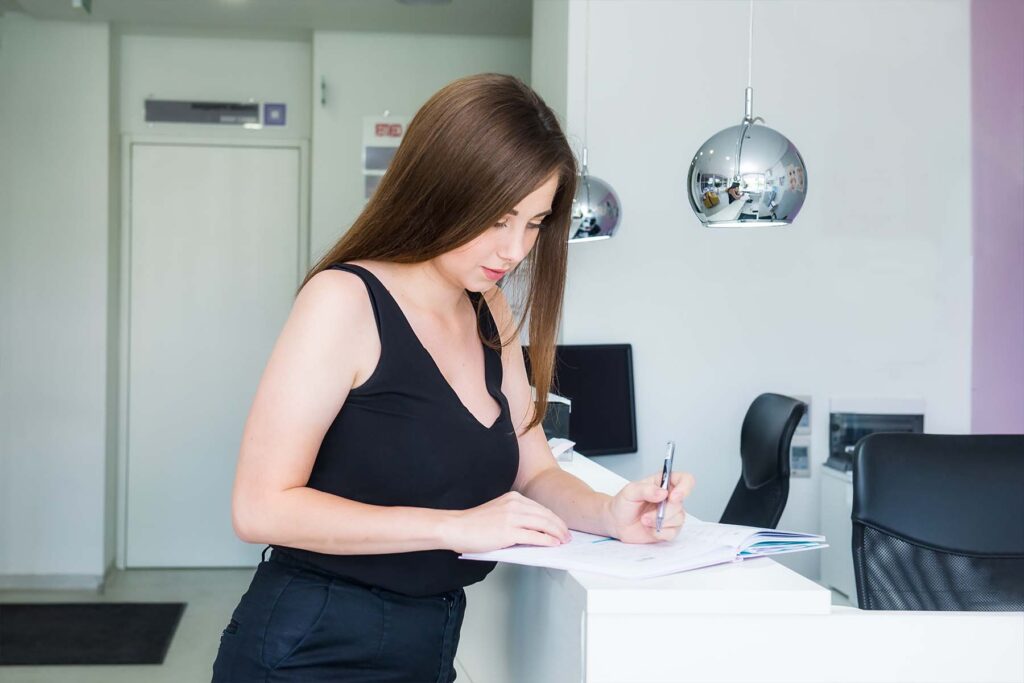
Start the Conversation
Before your visit, we’ll email you a short questionnaire so your therapist has a clear understanding of your symptoms and medical history. During your appointment, we’ll talk through when your symptoms started, what makes them better or worse, and how they’re affecting your day-to-day life.
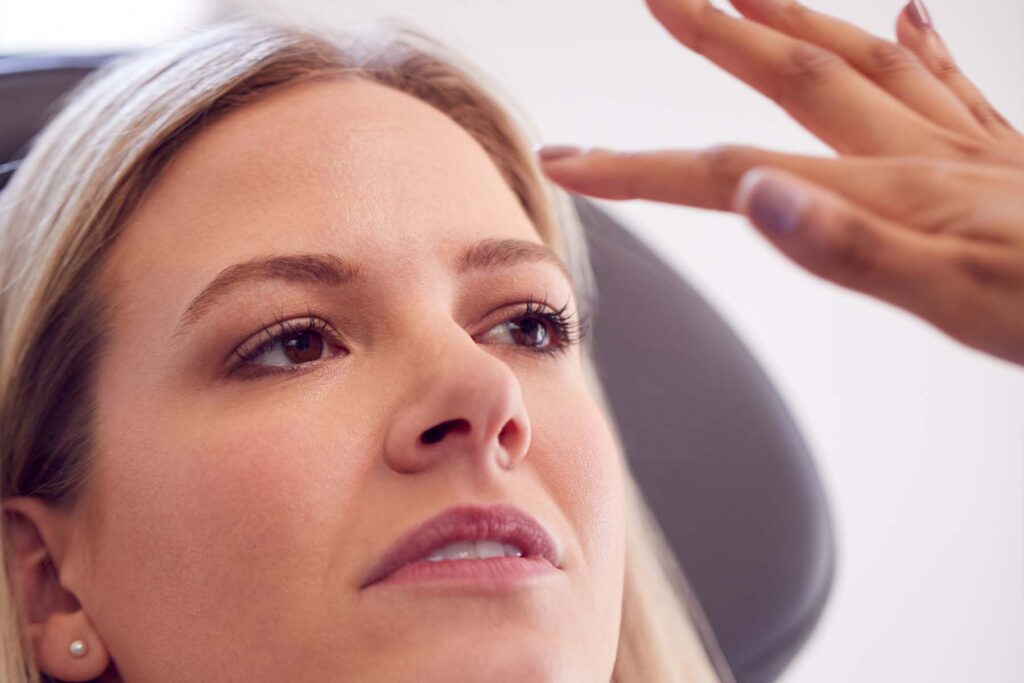
Vestibular Screening
Your physiotherapist will assess your eye movements, balance, and how your symptoms respond to positional changes. This may include simple gaze stabilization tests, motion sensitivity screens, or maneuvers to help us pinpoint the cause of your dizziness.
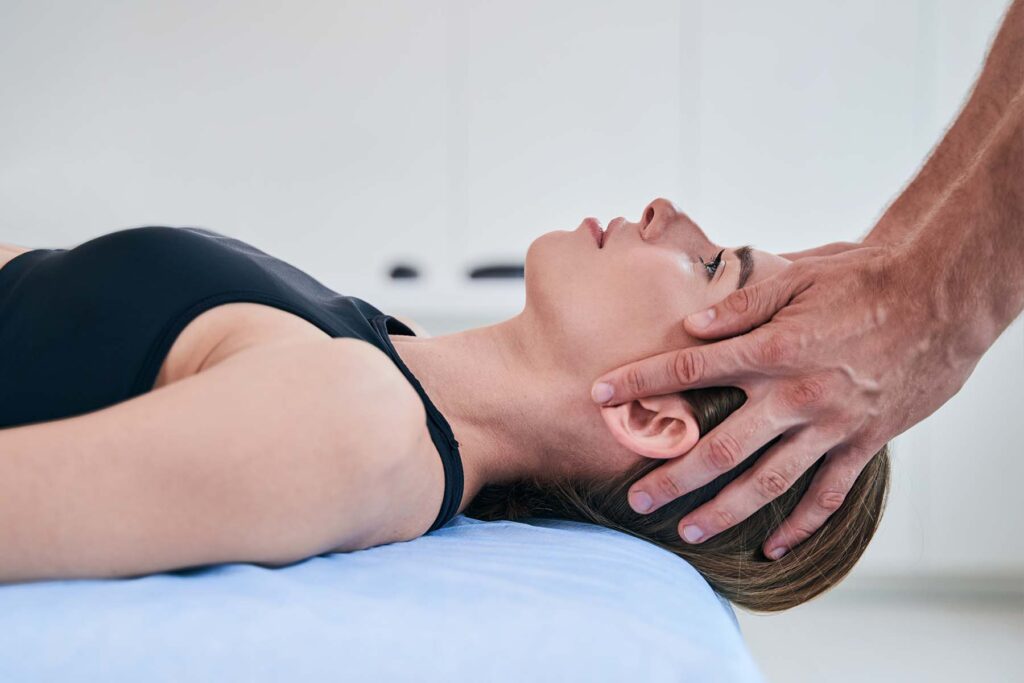
Neck and Postural Assessment
Your neck and posture can influence vestibular symptoms, so we’ll gently check for any stiffness, tension, or postural changes that could be contributing to how you feel.
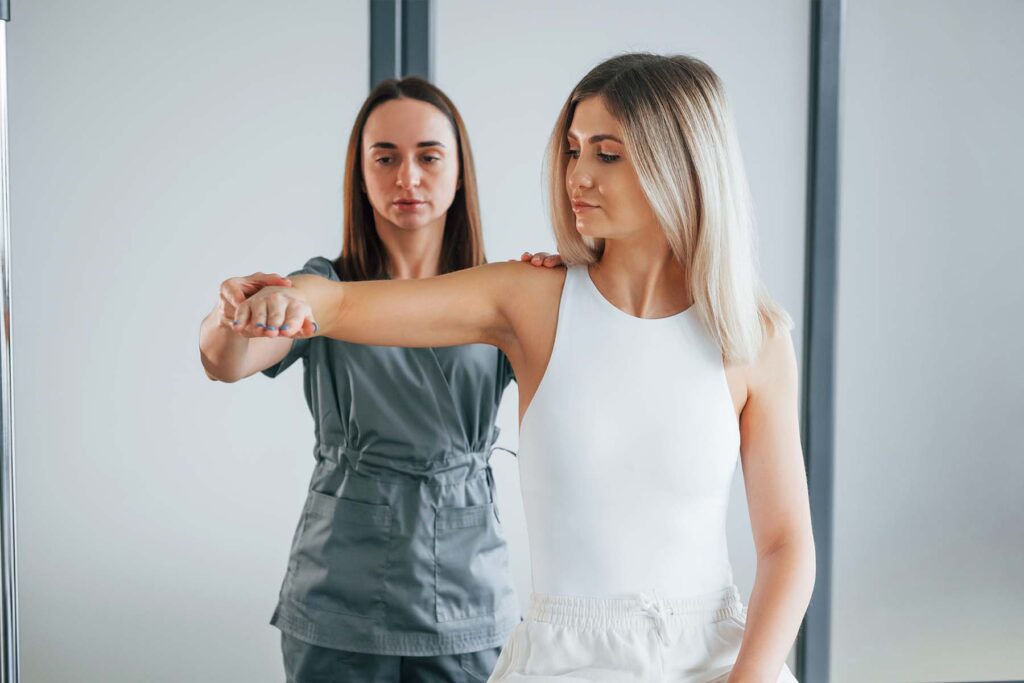
Balance and Gait Testing
We’ll be checking out how you move. From walking and standing to changing positions, in order to get a good idea of your balance, coordination, and how likely you are to fall.
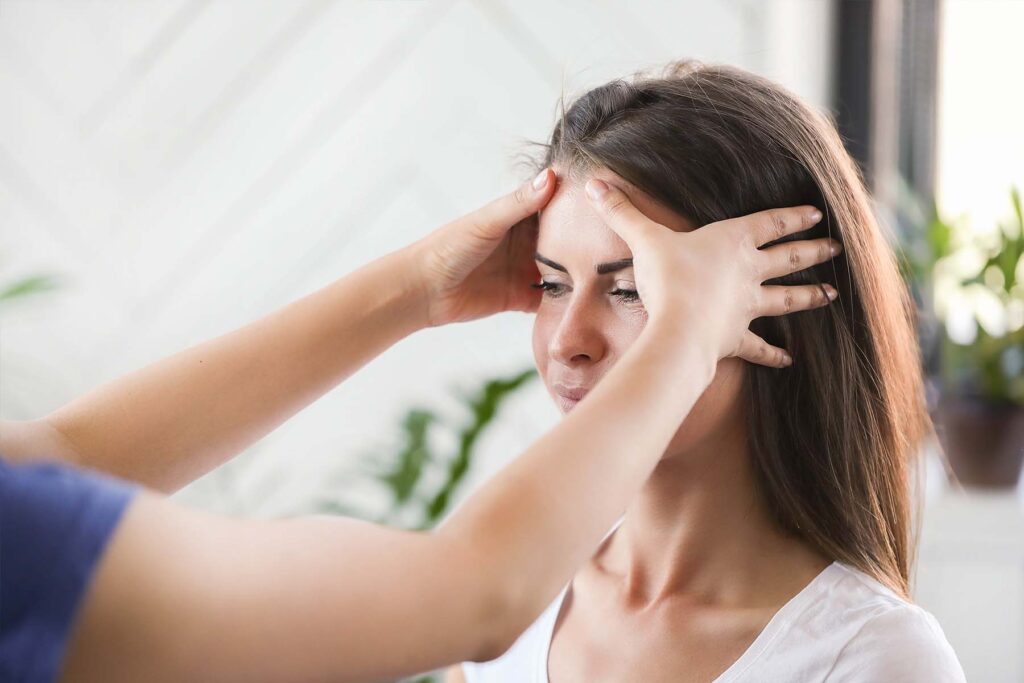
Build Your Plan
Based on your assessment, we’ll create a personalized vestibular rehabilitation plan. You’ll leave with a clear understanding of what’s going on, what might be causing your symptoms, and how we’ll move forward together.
What Your Rehab Plan Might Include
Every vestibular program is different, depending on your symptoms, diagnosis, and what feels manageable for you. Some of the most common treatments include:
Gaze Stabilization Exercises
Helps reduce visual blurring and improve focus by training your eyes to stay steady during head movements.
Repositioning Maneuvers for BPPV
For people with BPPV, maneuvers like the Epley technique can move displaced inner ear crystals and reduce vertigo quickly.
Balance and Coordination Training
Targeted exercises help you build strength and confidence in your balance, like walking with head turns or standing on one leg.
Education and Lifestyle Tips
You’ll learn how to manage your symptoms between appointments, including tips for posture, hydration, screen use, and daily activity pacing.
Habituation Exercises
If you’re sensitive to motion, we’ll use gentle exposure to reduce your discomfort over time and retrain your system.

Conditions We Commonly Treat with Vestibular Rehabilitation
Concussion rehabilitation can be helpful for a range of symptoms and related conditions, including:
- Benign Paroxysmal Positional Vertigo (BPPV)
Short bursts of vertigo triggered by head movements, caused by displaced crystals in the inner ear. - Vestibular Neuritis and Labyrinthitis
Viral infections that affect the inner ear, leading to sudden dizziness, nausea, and imbalance. - Post-Concussion Dizziness
Vestibular symptoms that linger after a concussion, such as dizziness, balance problems, and visual disturbances. - Persistent Postural-Perceptual Dizziness (PPPD)
Chronic dizziness often made worse by visual stimulation, like busy stores or scrolling screens. - Age-Related Balance Decline
Natural changes to the vestibular system that lead to unsteadiness or fall risk in older adults.
Why Choose Us for Vestibular Rehabilitation
We take your symptoms seriously and tailor your care to your unique needs. Here’s what sets our clinic apart:
Experienced, Certified Clinicians
You’ll work with a physiotherapist trained in vestibular rehab who understands how to support safe, lasting recovery.
Personalized One-on-One Care
You’ll see the same clinician each visit. This allows us to track your progress closely and make changes when needed.
A Calm, Supportive Environment
We’ve created a quiet, welcoming space that helps reduce stress and lets you focus on healing.
Collaborative Care
We stay connected with your physician or refer you to additional care if we think it will help your recovery.
Comprehensive Services Under One Roof
From vestibular rehab to general physiotherapy, we have a team ready to support your full wellness journey.
Frequently Asked Questions
Let’s Help You Regain Your Balance
You don’t have to live with constant dizziness or imbalance. Vestibular rehabilitation can help you move forward.
Reach out today to book your assessment. We’ll help you take the next step toward feeling steady and in control again.
